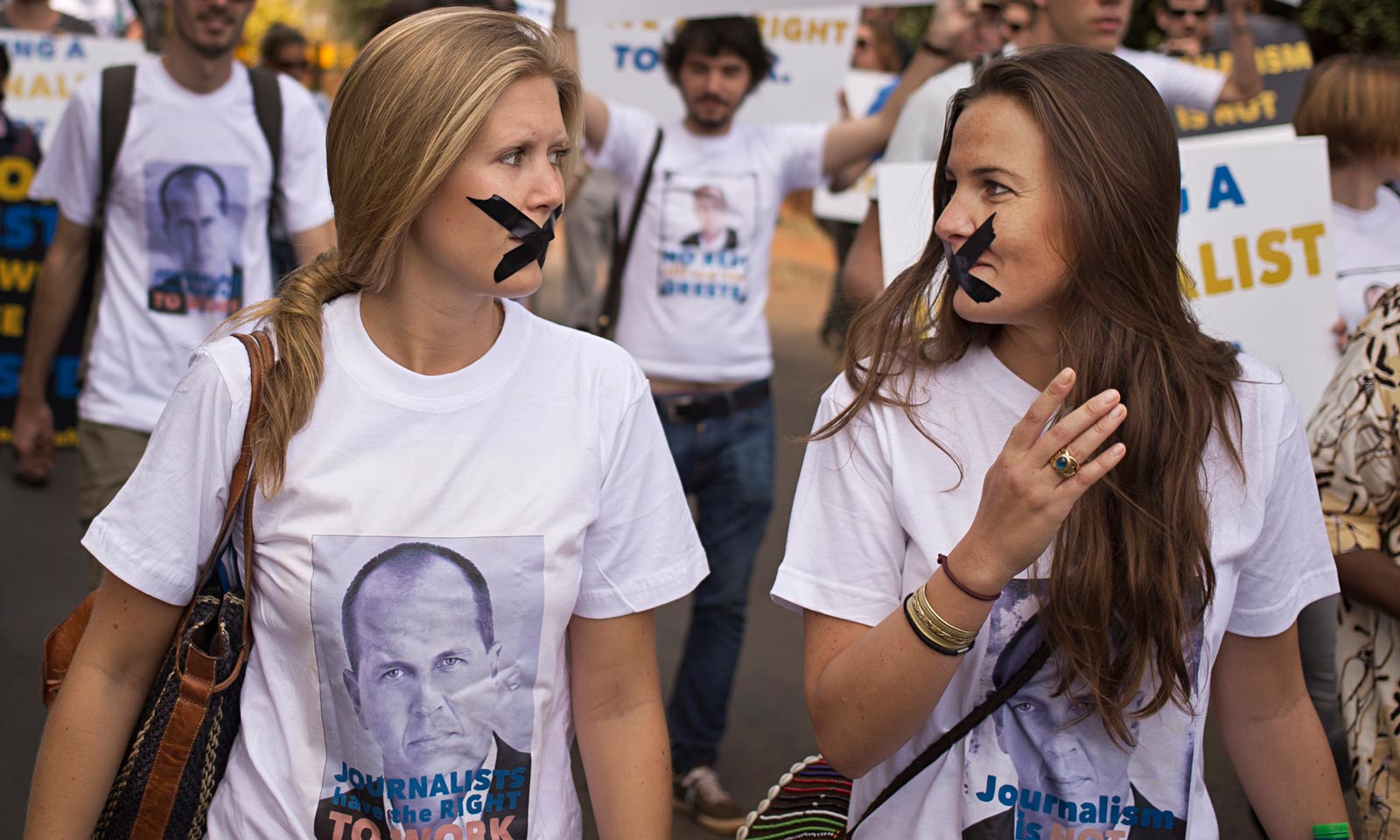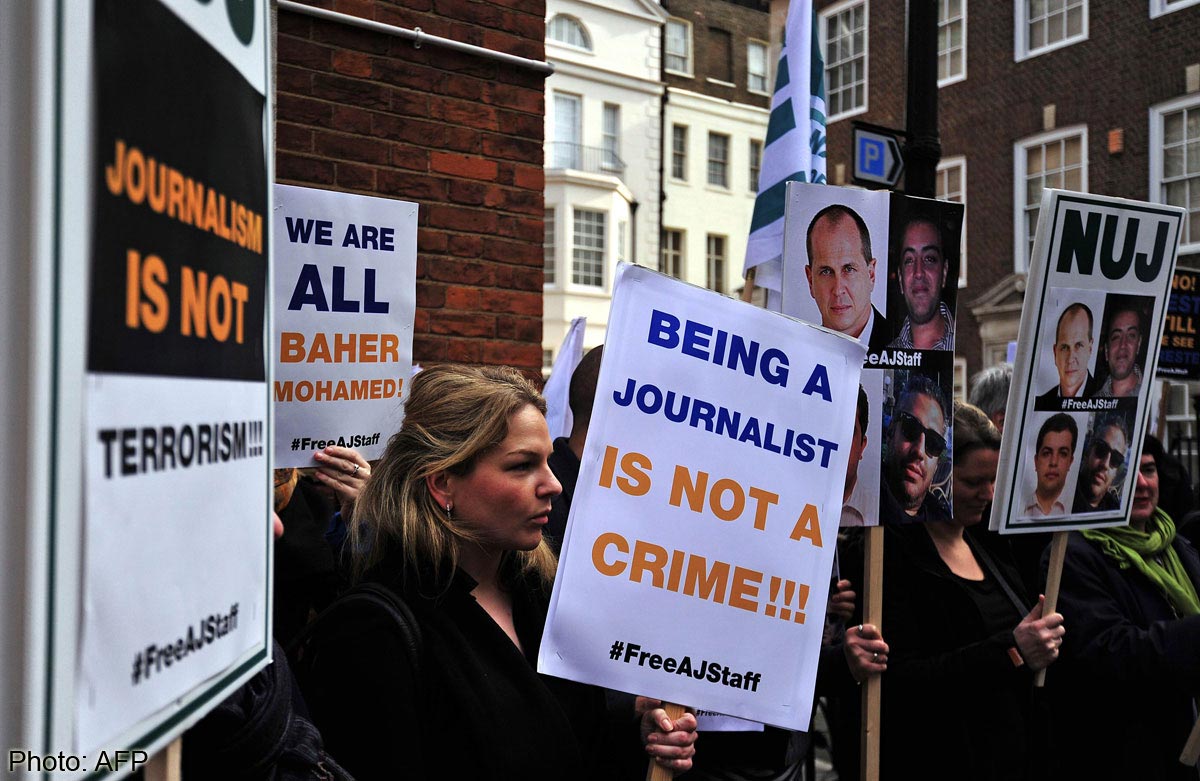After spending nearly six months behind bars in Egypt, three Al Jazeera journalists accused of spreading false news and conspiring with the Muslim Brotherhood were found guilty by an Egyptian court.
Peter Greste and Mohamed Fahmy were sentenced to seven years in prison. Abdullah Baher Mohamed was handed down 10 years — seven for one charge, three for a second.
The trio, who were reporting in Cairo when they were detained last December, have steadfastly denied the charges, as has Al Jazeera.
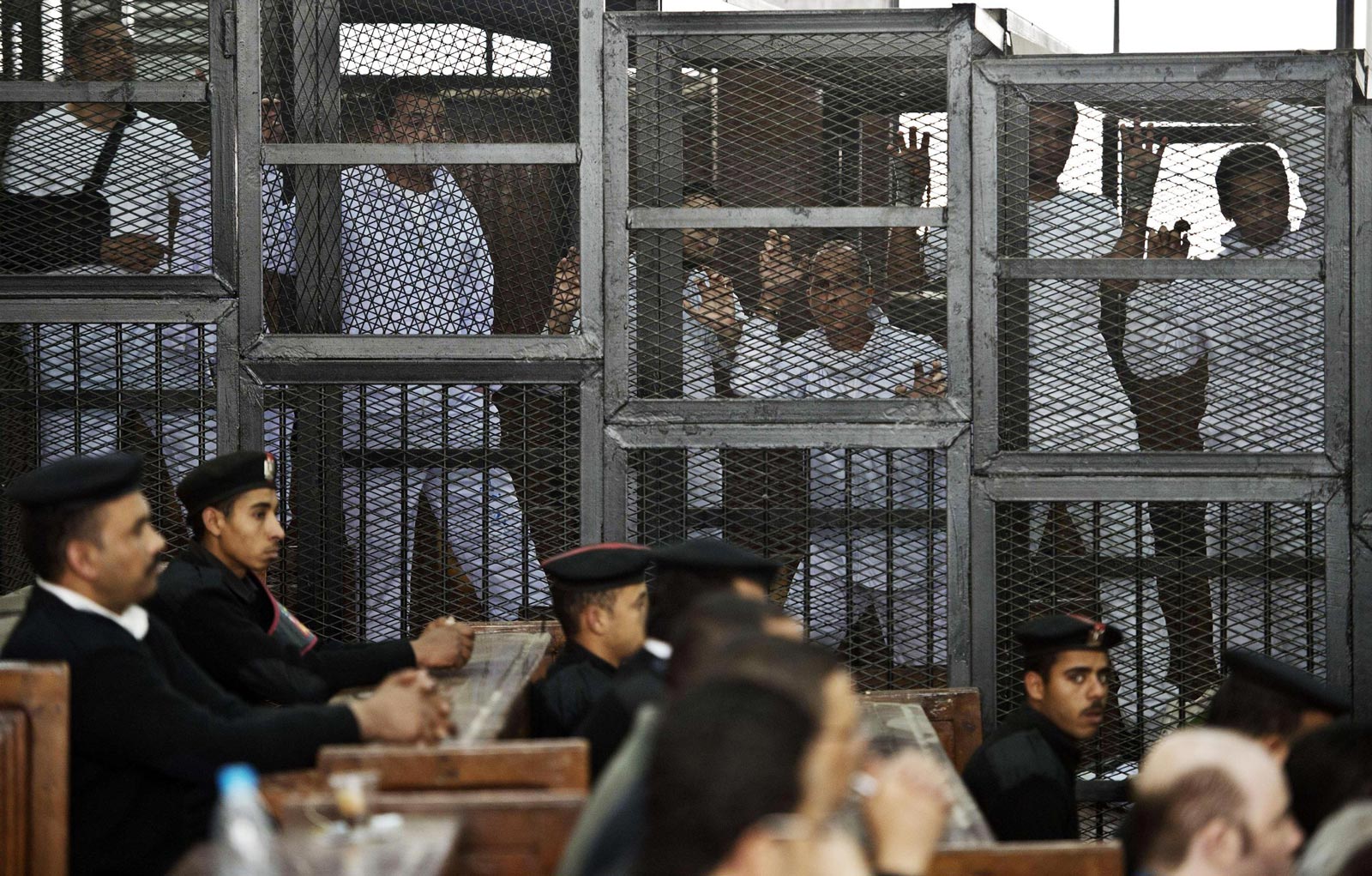
The prosecution, which has argued channels like Al Jazeera brought down Iraq and were planning to do the same in Egypt, has been widely condemned by international correspondents, press organizations and foreign governments.
“On June 23, the entire world will be watching Egypt to see whether they uphold the values of press freedom,” Al Jazeera spokesman Osama Saeed said last week.
Amnesty International has asserted that Greste, Fahmy and Mohamed are pawns in a geopolitical dispute between Egypt and Qatar, the tiny Middle Eastern country that finances Al Jazeera. Qatar has long been perceived as a supporter of the Muslim Brotherhood, a religious and political group banned in Egypt and labeled a terrorist organization after President Mohamed Morsy’s ouster last year.
That declaration came just days before the Al Jazeera journalists were arrested at the Cairo hotel where they were working. Egyptian state-run media said they were charged with “broadcasting false information” to harm the country’s national security and being members of an illegal organization, the Muslim Brotherhood.
A number of other defendants, with no affiliation to Al Jazeera, are facing similar charges. The prosecutors have been criticized for presenting evidence that was “fabricated,” as Greste has asserted, or irrelevant to the case, like videos of Greste’s old news reports from other countries.
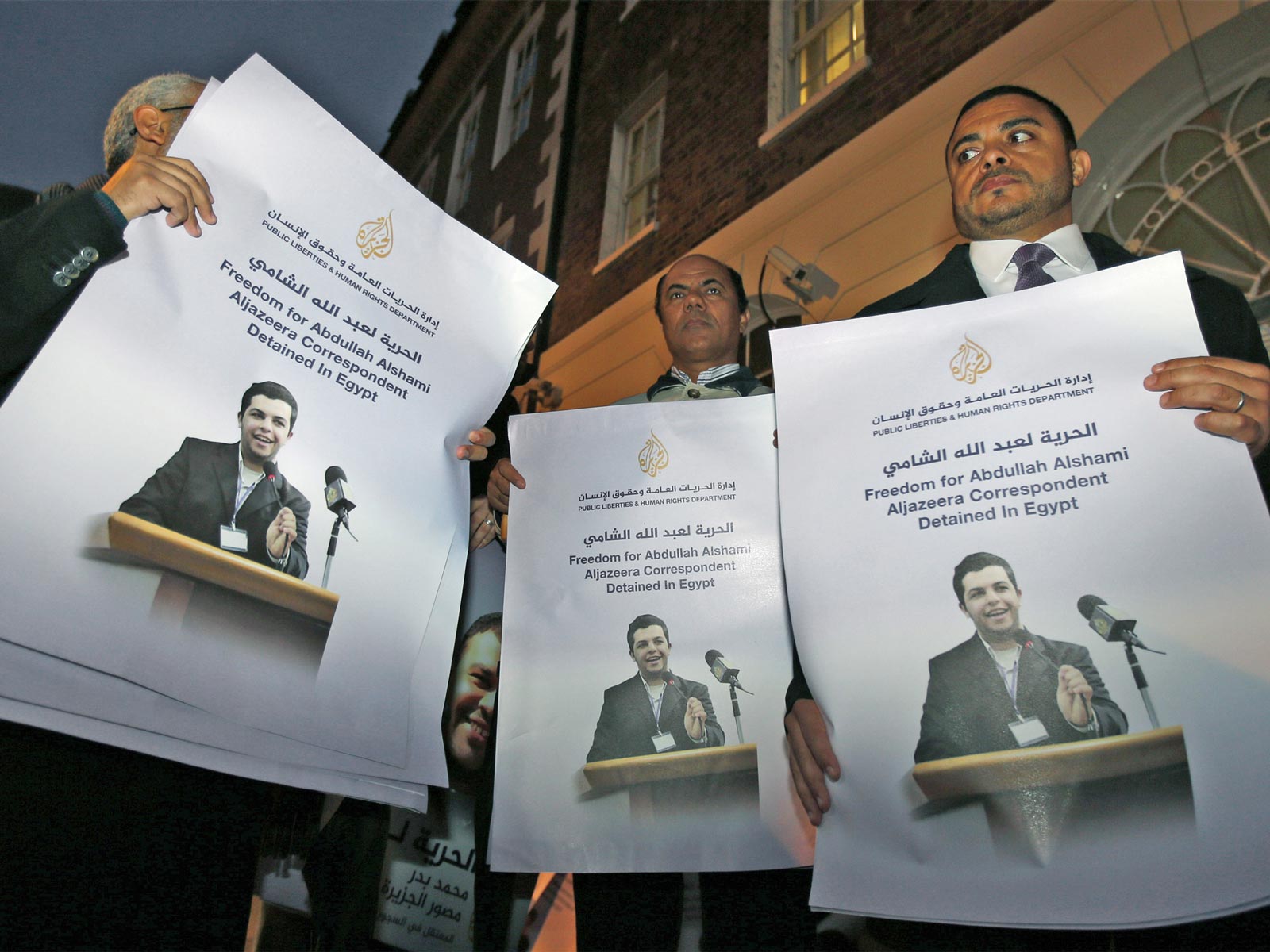
‘Doing their job’
Greste, Fahmy and Mohamed were working for Al Jazeera’s English-language news channel when they were detained. Greste, a correspondent, previously worked for CNN, Reuters and the BBC, while Fahmy, the channel’s bureau chief in Cairo, has also worked for CNN.
“Mohammed, Baher, and Peter are first class journalists,” Al Jazeera English managing director Al Anstey said in a statement after they’d been detained for three months. “They were just doing their job covering and challenging all sides of the story in Egypt.”
In an interview for CNN’s “Reliable Sources,” Greste’s parents, Juris and Lois, said they could not understand why Peter was still behind bars.
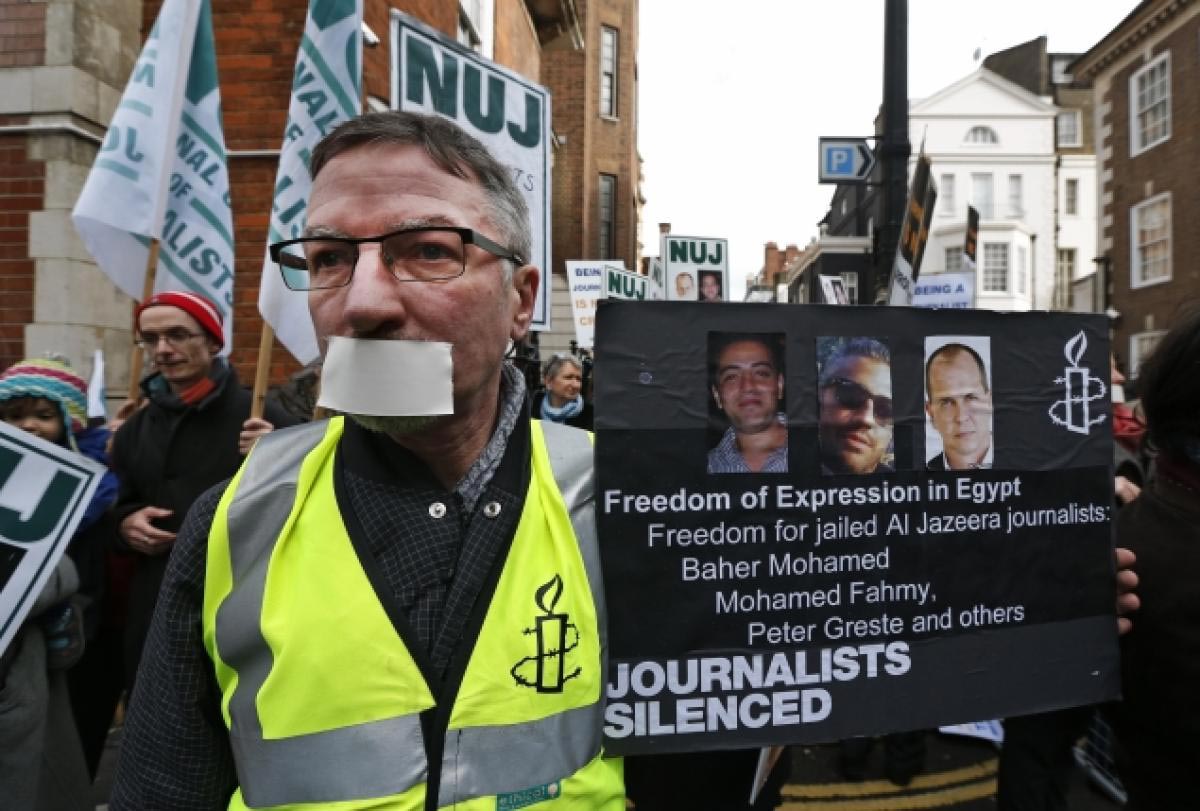
“Peter had no reason, no motive for doing anything like the allegations against him,” Lois Greste said. “He would have reported the same story, be it for CNN, BBC, Reuters or anybody else.”
Juris Greste said it was not unreasonable to characterize his son as a “political prisoner.”
“It looks like a kidnapping by the state, as it were,” he said, even as he emphasized that he and his wife “bear no ill will against Egypt or its people.”
On Sunday U.S. Secretary of State John Kerry said he spoke “specifically about Al Jazeera journalists” during a meeting with the new Egyptian president, Abdel Fattah el-Sisi.
While Kerry did not elaborate on the outcome, he said generally that they “discussed the essential role of a vibrant civil society, a free press, and rule of law, and due process in a democracy.”
